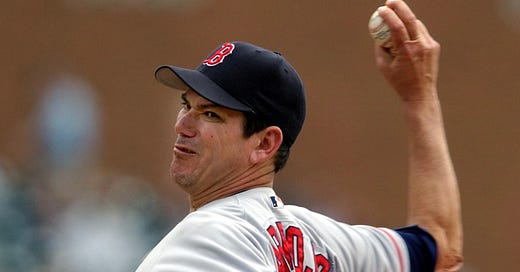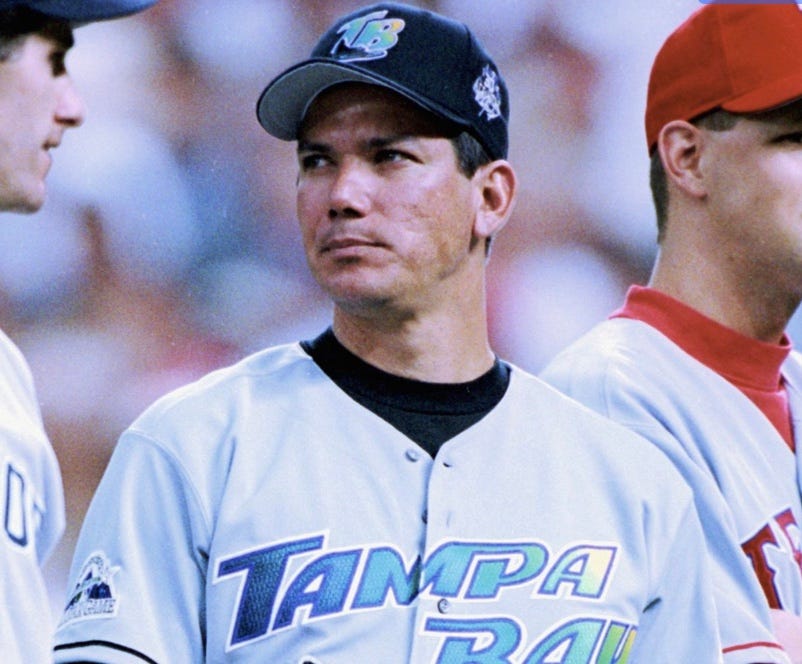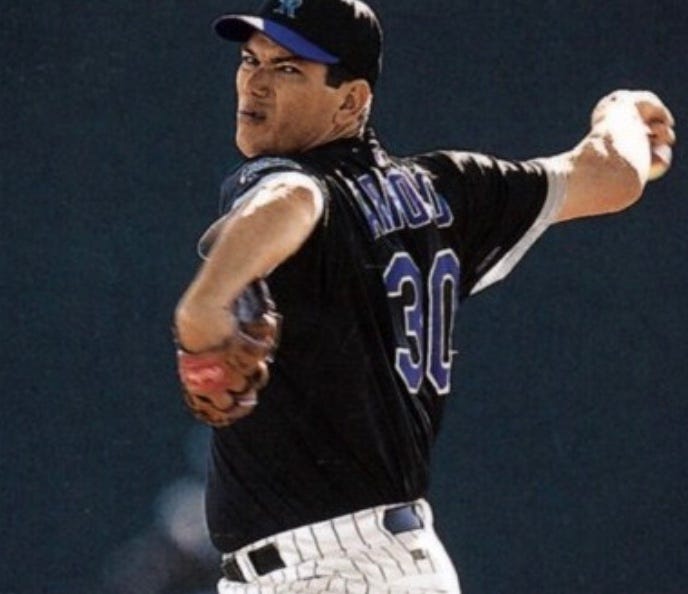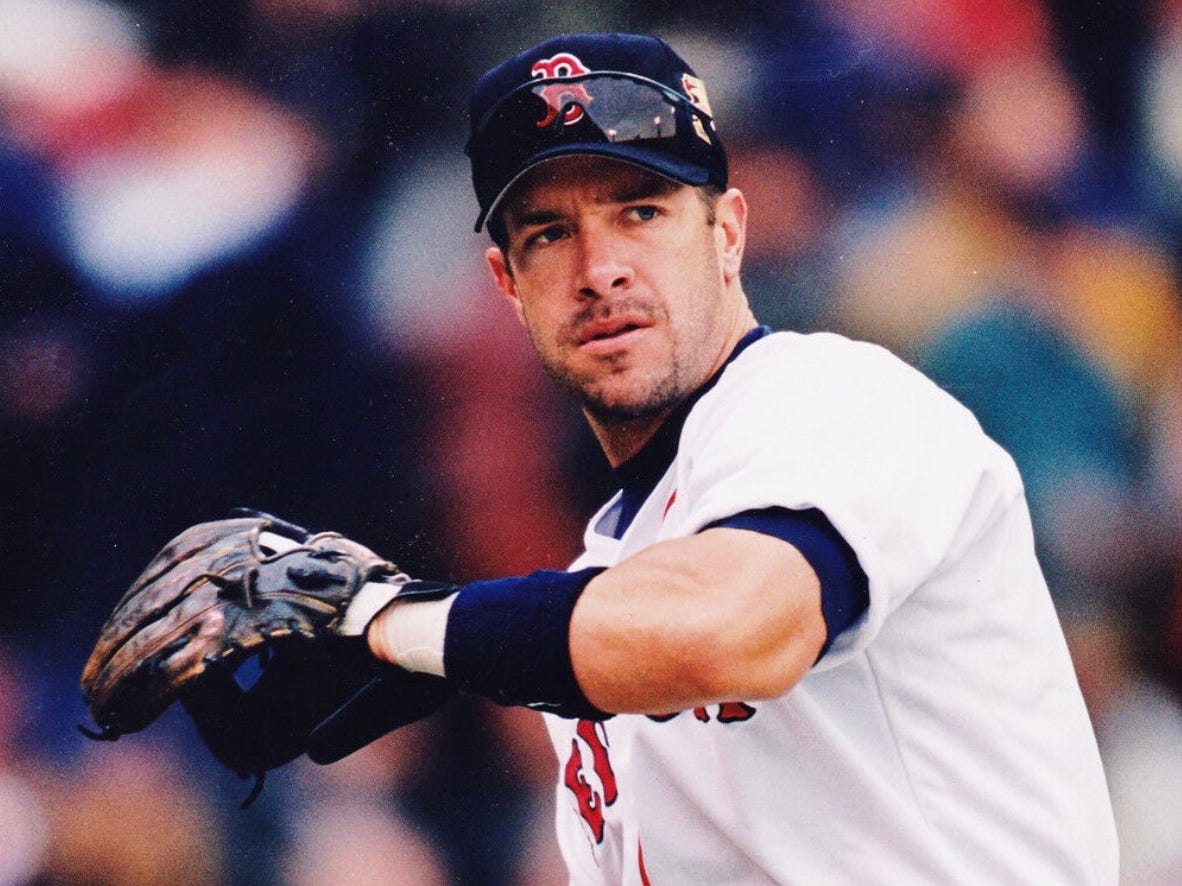Beyond the Monster is an ongoing series where we take you back in time and look at moments in Red Sox history.
The 2000 Major League Baseball season ended with the iconic World Series dubbed the Subway Series between the New York Yankees and the New York Mets. That World Series the New York Yankees won that Fall Classic in five games over the Amazin’ Mets.
The Red Sox were competitive that season trying to catch the Yankees for first in the division, a division the Yankees would ultimately go on to win over the Red Sox by 2.5 games. Boston won 85 games in 2000 and ace Pedro Martinez was dominant all season long.
The Red Sox made some interesting trades that season, and former general manager Dan Duquette swung a seven-player trade that would land him right-handed starter Rolando Arrojo from the Colorado Rockies. Arrojo pitched for the Rays, Rockies and Red Sox during his big league career.
Arrojo was relatively ineffective in the American League East pitching in the Red Sox rotation. Duquette was banking on Arrojo to add depth to the rotation and slotting the righty behind Martinez, who at the time of the deal was 11-3 with a 1.38 ERA.
The rest of the Red Sox starters combined for a 25-28 record prior to the trade according to Baseball Reference.
Who was Rolando Arrojo?
Arrojo came up with the Rays after defecting from Cuba and won 14 games in his rookie season. He was the runner up to former A’s outfielder Ben Grieve, who won the AL Rookie of the Year in 1998. Grieve had a great season for the A’s hitting .288 with 18 home runs while driving in 89 RBI for the A’s in 1998.
Arrojo won 14 games for the Rays in 1998, threw 202 innings and struck out 152 batters, which led all rookies that season. Despite leading in those categories he fell short on the Rookie of the Year award.
“In 1998, I had stupendous numbers and deserved to be Rookie of the Year. Winning 14 games with an expansion franchise isn’t easy. To this day I think no one has ever done that. Being a rookie in MLB is a big challenge especially when one comes from amateur baseball”, said Arrojo.
While he called his numbers “stupendous”, he also lost 12 games that rookie season finishing with a 14-12 record, not exactly stupendous.
Arrojo traded to the Rockies
After a few seasons with the Rays, they went on to trade Arrojo to the Colorado Rockies for third baseman Vinny Castilla.
The cuban right-hander had to adjust to the high altitude of Denver and the then 31-year-old Arrojo was taking a 7-12 record and his 5.12 ERA to Colorado. "I'm not going to think about the altitude," Arrojo said to the Denver Post after the trade to the Rockies.
"I just do my normal pitching." As to be expected, he said he was happy about the change. "It feels good to be with people who want me and believe in me. If I can help the team, I am happy."
While he may not have thought about the altitude, it certainly felt statistically it impacted him while in Denver. Arrojo pitched in 19 games for the Rockies yielding a 5-9 record, with a 6.04 ERA, giving up 14 home runs in 101 1/3 innings of work.
"It is easier to change cities than countries," Arrojo said following the trade to the Rockies. He would soon learn that he would be changing cities one more time the following season in a seven-player trade with the Boston Red Sox.
Red Sox acquire Arrojo in a seven-player swap
The Red Sox acquired Arrojo, second baseman Mike Lansing and pitcher Rick Croushore in exchange for second baseman Jeff Frye, former Dartmouth High School righty Brian Rose and righty John Wasdin. The deal on the surface looked to benefit the Red Sox.
“We thought Arrojo would stabilize our rotation for the rest of the season and going into the postseason," Red Sox general manager Dan Duquette said following the seven-player trade. ”It's always good to have the innings and the experience in the postseason. We thought that Arrojo was one of the better experienced pitchers available."
In 2000, he went 5-2 in 13 starts for the Sox with a 5.05 ERA after being traded from the Rockies. He had a career low WHIP in 2001, 1.190, after being moved to the bullpen.
The Red Sox tried to trade Arrojo in 2001, according to the Providence Journal, he was difficult to work with and, having played for three teams in a year and half, most general managers seemed weary of him.
In three years with the Red Sox he was 14-9 with a 4.39 ERA, which were his best stats out of the three teams he played for in his career. He had a record of 40-42 and an earned run average of 4.55 in five big league seasons.
Arrojo had one good season, and that was his rookie season for the Rays. The only plus in acquiring Arrojo was Lansing and his memorable catch to secure Hideo Nomo’s no-hitter in 2001.
The Duke made some outstanding moves during his tenure as general manager of the Red Sox, however the Arrojo deal was a bust.
Follow Chris on Twitter @ChrisHenrique
For additional Red Sox, Bruins, Patriots, MLB and NFL content follow Beyond the Monster on Twitter @BeyondtheMnstr.









